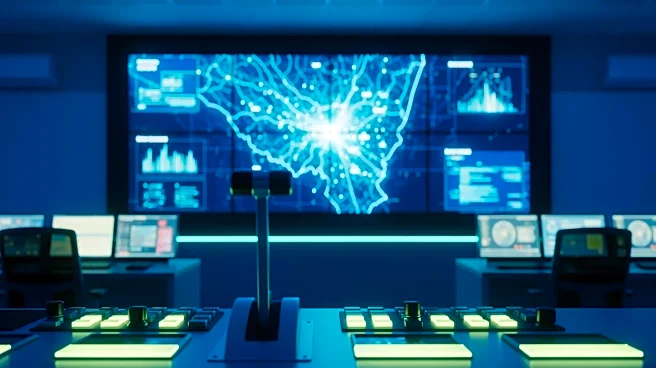What's Happening?
The Illinois Commerce Commission (ICC) has been granted new powers under recent state energy legislation to ensure the state can meet its growing electricity demands. This development is part of an 'all
of the above' strategy aimed at addressing Illinois' energy and economic needs. The legislation anticipates that market forces will eventually favor clean renewable energy over fossil fuels due to lower costs and faster integration into the grid. However, Illinois faces potential challenges from electricity shortages in other states, as it is part of multistate regional transmission organizations (RTOs) responsible for grid reliability. The effectiveness of the ICC's new powers is contingent on the performance of these RTOs.
Why It's Important?
The new powers granted to the ICC are crucial for Illinois to manage its energy pricing and reliability. As the state navigates its energy future, the role of RTOs becomes significant in ensuring multistate grid integrity. Without adequate oversight and capacity growth from RTOs, Illinois may struggle to control its energy costs. This situation underscores the need for comprehensive national permitting reform to facilitate interstate transmission capacity building. Such reforms are essential to secure an affordable energy future for Illinois and the broader U.S., impacting energy stakeholders and consumers.
What's Next?
The focus will likely shift to Congress, which plays a pivotal role in enabling RTO capacity growth through legislative reforms. Comprehensive permitting reform is needed to build interstate transmission capacity at a rate that meets demand. Stakeholders, including energy companies and policymakers, may push for reforms that balance community input, environmental protection, and judicial review limitations. The outcome of these legislative efforts will significantly influence Illinois' energy landscape and its ability to manage electricity pricing and reliability.
Beyond the Headlines
The broader implications of this development include potential shifts in energy policy and market dynamics favoring renewable energy. As Illinois and other states grapple with energy demands, the role of RTOs and national permitting reforms could redefine energy infrastructure and regulatory frameworks. This transition may also prompt discussions on environmental impacts and community engagement in energy projects, highlighting the intersection of policy, technology, and societal interests.









